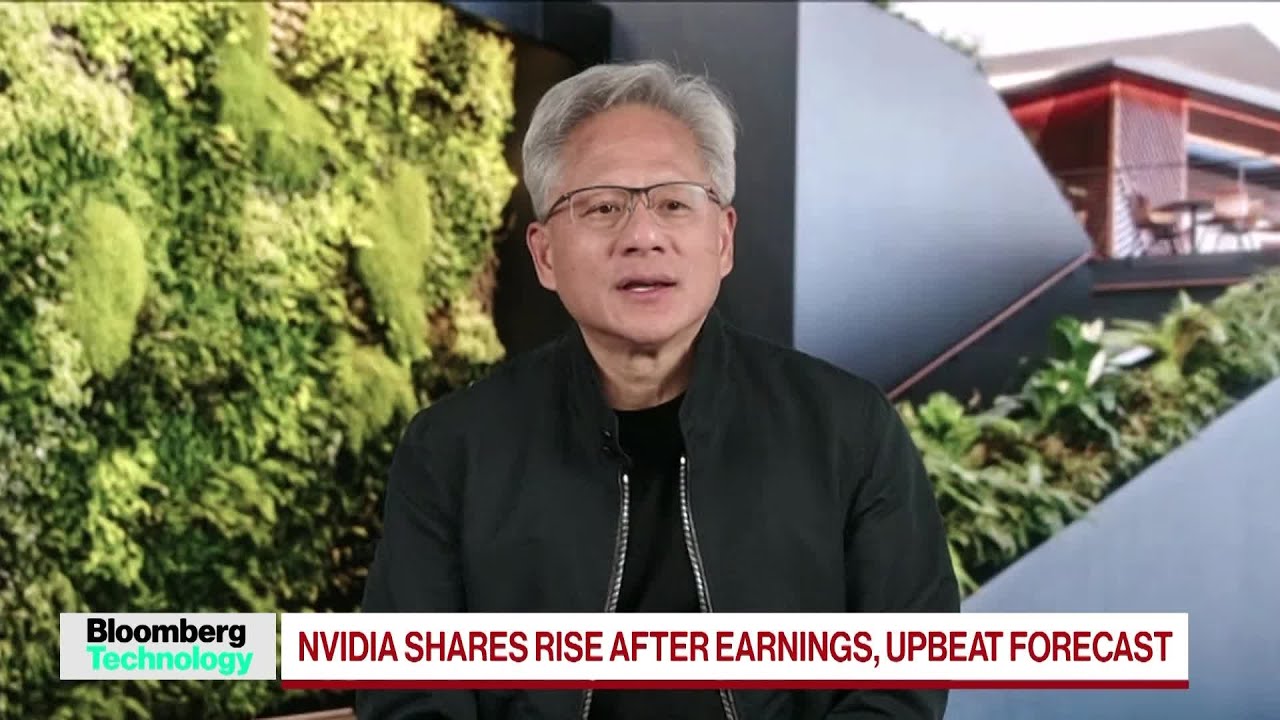Nvidia CEO Jensen Huang discusses the company’s nearly $45 billion in fiscal Q2 sales, driven by AI advancements like the Grace Blackwell architecture and H100 chip, despite a slight revenue decline and challenges in the Chinese market. He emphasizes the importance of American innovation, global talent, and international cooperation in advancing AI technology and maintaining competitive leadership.
In the interview, Nvidia CEO Jensen Huang discusses the company’s fiscal second quarter sales, which are approximately $45 billion with a slight decrease of around 2%. He attributes some of the lost revenue opportunity, particularly related to China, to the rapid growth in demand driven by advancements in AI inference and reasoning capabilities. Huang highlights the success of products like the Grace Blackwell architecture and the H100 chip, which have fueled a surge in AI workloads and applications, compensating for some of the revenue shortfall from China.
Huang emphasizes the strategic importance of the Chinese market, noting it as the second-largest AI market globally and home to many of the world’s leading AI researchers. Despite current restrictions and limitations on designing chips specifically for China, Nvidia is exploring options, including potentially developing new architectures or chips that can add value within the stringent regulatory environment. He acknowledges the rapid evolution of Chinese competitors like Huawei, which are advancing their own AI hardware, making it essential for Nvidia to remain competitive and innovative.
The conversation also touches on the geopolitical landscape, with Huang expressing confidence in American technology companies’ ability to compete globally. He discusses the changing policies in China, where Chinese tech giants are shifting to domestic solutions like Huawei’s offerings due to restrictions on American technology. Huang advocates for continued confidence and investment in American innovation, emphasizing that the U.S. remains home to some of the world’s top computer scientists and that American companies are highly competitive if they believe in their ability to succeed.
Regarding U.S. policy initiatives, Huang praises President Trump’s vision of reindustrialization through tariffs and the push to rescind certain export controls, such as the air diffusion rule. He sees these measures as transformative, encouraging domestic manufacturing and global investment in the U.S. He also comments on the importance of immigration, highlighting that many talented engineers and scientists in the U.S. are immigrants who contribute significantly to the tech industry. Huang advocates for maintaining an open and welcoming environment for global talent to sustain innovation and growth.
Finally, Huang discusses Nvidia’s diverse customer base beyond hyperscalers, including significant collaborations with Tesla on AI and autonomous vehicle projects. He expresses enthusiasm about Tesla’s advancements in self-driving cars and robotics, which he believes will become major industry opportunities. Huang concludes by sharing plans to visit Europe, where he will meet with government leaders and industry stakeholders to promote AI infrastructure development. He underscores the global recognition of AI as a critical infrastructure akin to electricity and the importance of international cooperation in advancing AI technology.
